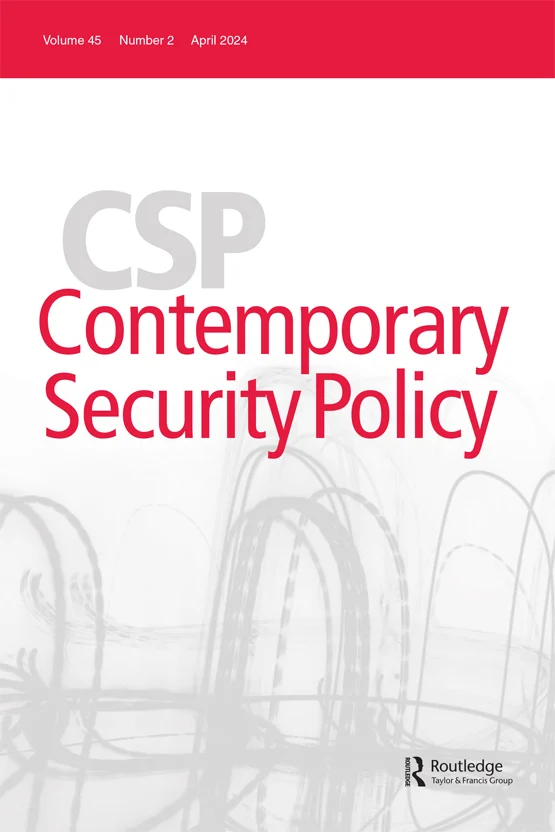Politics is not everything: New perspectives on the public disclosure of intelligence by states
IF 5
1区 社会学
Q1 INTERNATIONAL RELATIONS
引用次数: 5
Abstract
ABSTRACT Why do states deliberately disclose hard-earned intelligence? For political and operational reasons, Official Public Intelligence Disclosure (OPID) is often considered counterintuitive and ill-advised. However, as this practice proliferates in international affairs in recent years, extant scholarship emphasizes domestic political incentives for its employment. Drawing on interviews with policy, defense, and media figures in Israel, this article generates alternative perspectives. First, in keeping with the dictates of contemporary information and media environment, states engage in OPID as a performative act designed to enhance diplomacy and shape international agenda. Second, in the age of limited wars, instead of being amassed purely for large-scale escalation, selective disclosure of intelligence can be weaponized against adversaries whose operations and very survival depend on secrecy, so as to shape their behavior below the threshold of war. The article advances our understanding of the innovative ways in which intelligence can be strategically employed in the information age.政治不是一切:对国家公开披露情报的新看法
摘要:为什么国家故意披露来之不易的情报?出于政治和操作原因,官方公共情报披露(OPID)通常被认为是违反直觉和不明智的。然而,随着这种做法近年来在国际事务中激增,现有的学术界强调国内政治激励其就业。本文通过对以色列政策、国防和媒体人物的采访,产生了不同的视角。首先,根据当代信息和媒体环境的要求,各国参与OPID是一种旨在加强外交和制定国际议程的表演行为。其次,在有限战争的时代,选择性披露情报可以被武器化,而不是纯粹为了大规模升级而收集,以对抗那些行动和生存都依赖于保密的对手,从而使他们的行为低于战争的门槛。这篇文章加深了我们对在信息时代战略性地运用智力的创新方式的理解。
本文章由计算机程序翻译,如有差异,请以英文原文为准。
求助全文
约1分钟内获得全文
求助全文
来源期刊

Contemporary Security Policy
Multiple-
CiteScore
14.60
自引率
6.80%
发文量
22
期刊介绍:
One of the oldest peer-reviewed journals in international conflict and security, Contemporary Security Policy promotes theoretically-based research on policy problems of armed conflict, intervention and conflict resolution. Since it first appeared in 1980, CSP has established its unique place as a meeting ground for research at the nexus of theory and policy.
Spanning the gap between academic and policy approaches, CSP offers policy analysts a place to pursue fundamental issues, and academic writers a venue for addressing policy. Major fields of concern include:
War and armed conflict
Peacekeeping
Conflict resolution
Arms control and disarmament
Defense policy
Strategic culture
International institutions.
CSP is committed to a broad range of intellectual perspectives. Articles promote new analytical approaches, iconoclastic interpretations and previously overlooked perspectives. Its pages encourage novel contributions and outlooks, not particular methodologies or policy goals. Its geographical scope is worldwide and includes security challenges in Europe, Africa, the Middle-East and Asia. Authors are encouraged to examine established priorities in innovative ways and to apply traditional methods to new problems.
 求助内容:
求助内容: 应助结果提醒方式:
应助结果提醒方式:


